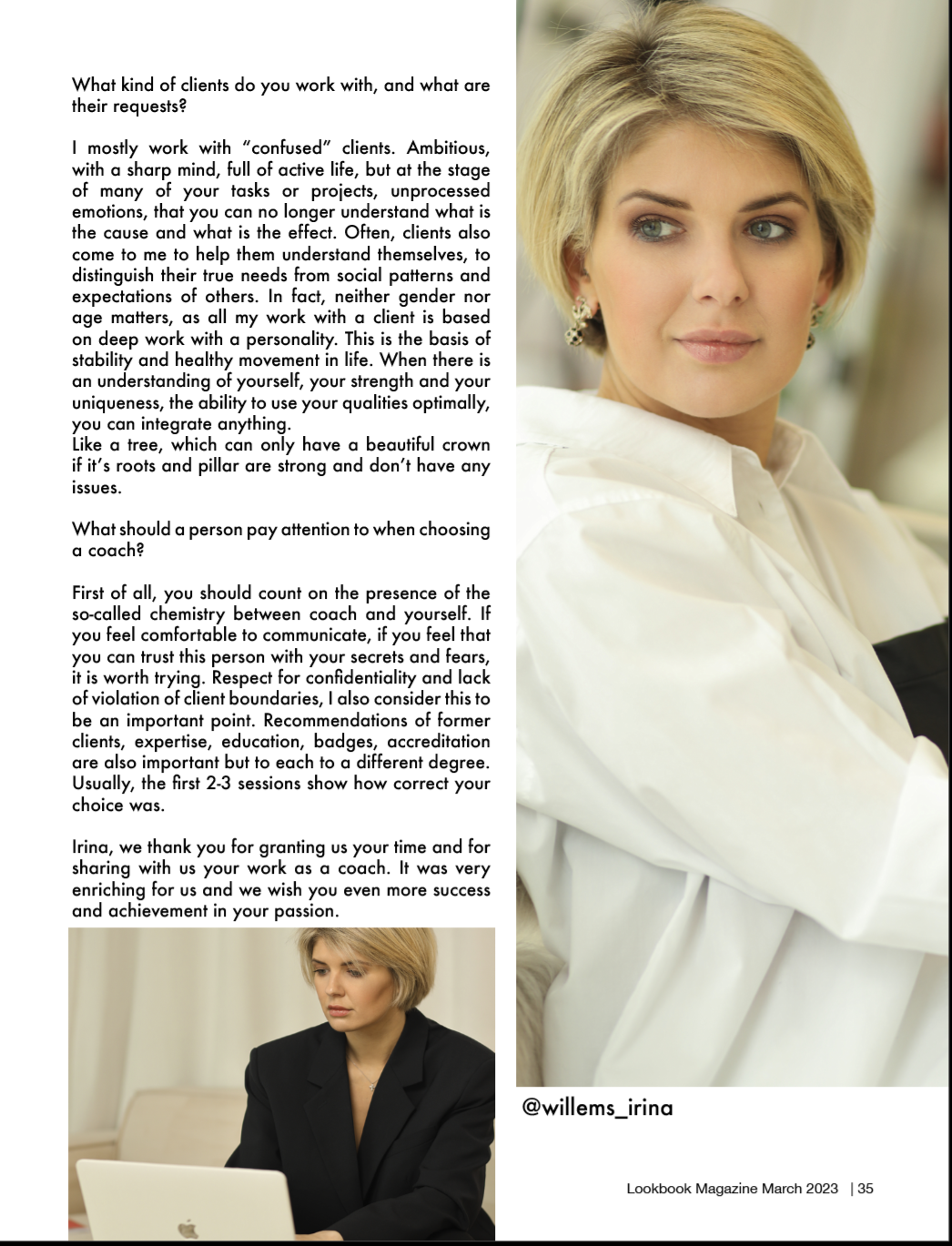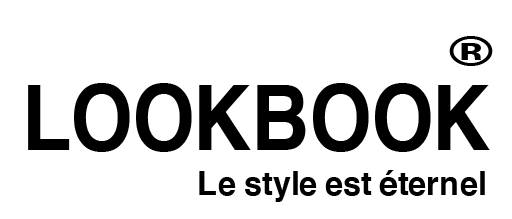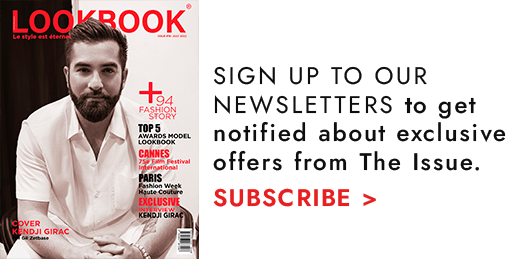Behind Irina’s shoulders hides a successful career in financial analysis and banking, as well as experience as a model. Realizing herself as an attentive mother and a beloved wife, Irina has embarked on a new stage of her career by becoming a coach. Numerous experiences of working with people, the ability to systematize and analyze information and an ever-increasing thirst for knowledge have contributed to Irina developing her own unique approach to coaching. With her help, work with people is more efficient and the result remains for life.
Tell us about yourself and what you do.
My name is Irina Willems, I currently live in London. I help people to deal with their issues and learn to build a life based on their own desires and needs, not imposed ones. I am a Professional Coach, certified by the world’s largest coaching federation ICF (PCC ICF).
What is the difference between coaching and currently popular psychotherapy?
The work of a psychologist is intended to help the client gain more insight about themselves, get rid of what they don’t need or realize what they want. At the same time, coaching is different as there is no other tools rather than questions. All work is constructed on the partnership of the coach and the client, without recourse. The focus is solely on the client and his inner world. The coach works like a kind of mirror for the client, helping them to see and hear themselves, understand where to look and what to look for. The coach does not teach, advise, evaluate or diagnose, breaks patterns. He follows the client’s intention, helping to develop and clarify in detail the details of the request. Such “adult and honest” work, which includes both theory and mandatory implementation of awareness in life. The client must necessarily have the intention to work on themselves or on their situation, but in this work there is no room for pain and the topics that the client currently experiences discomfort if he is not ready to work on it.
What is coaching to you personally?
For me, it is mostly about personal growth and self-improvement. Not everybody can understand independently their thoughts and events, especially if they are underpinned by negative emotions. Coaching is wonderful for achieving clarity in the head and, consequently, finding a lot of opportunities to change life in the desired direction. The coach highlights the blind spots, helps to see the situation from unusual angles for the client. It is very valuable. Moreover, after the sessions, the clients demonstrate coaching way of thinking and they can independently resolve many other situations of their life. Such a long-term winning investment.
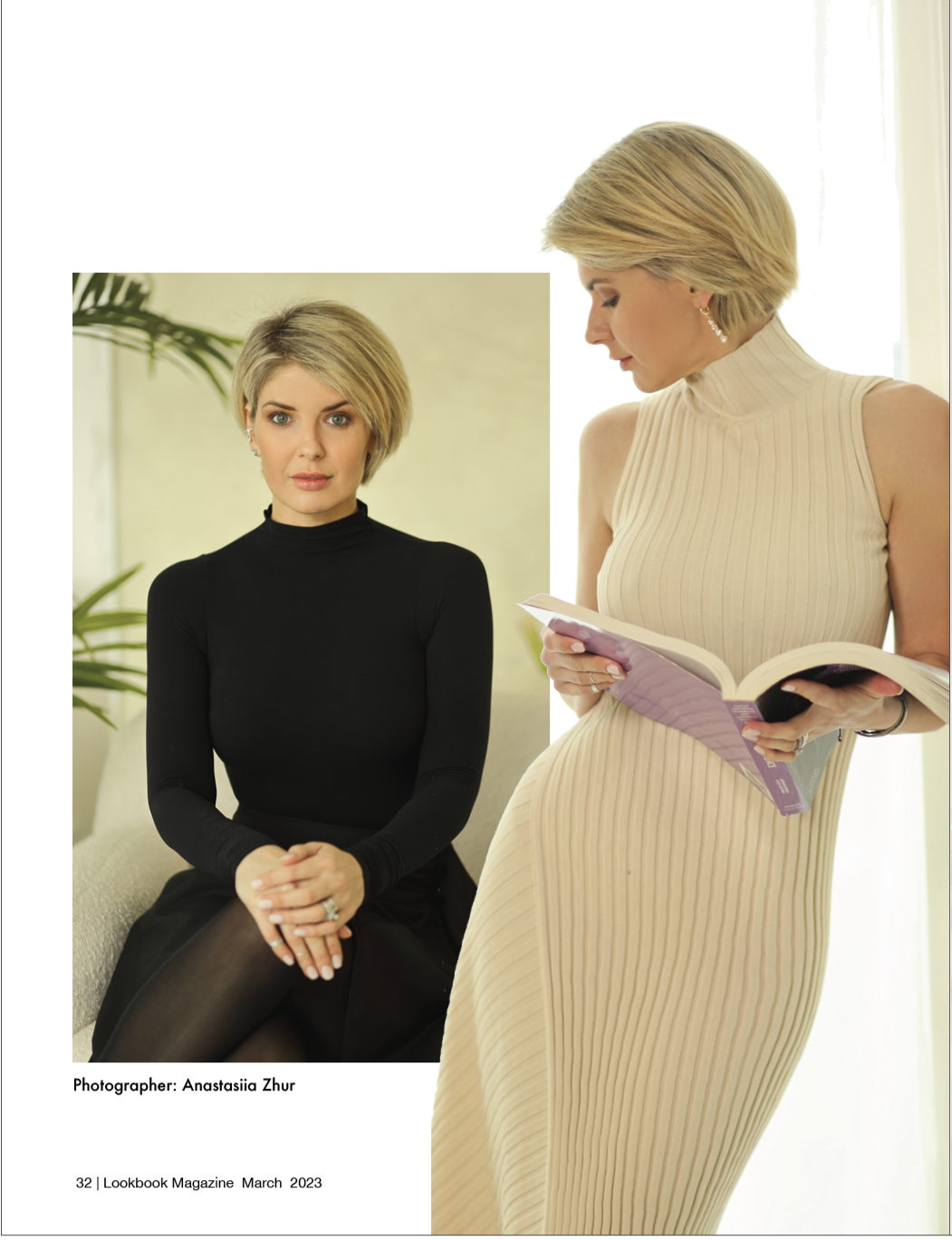
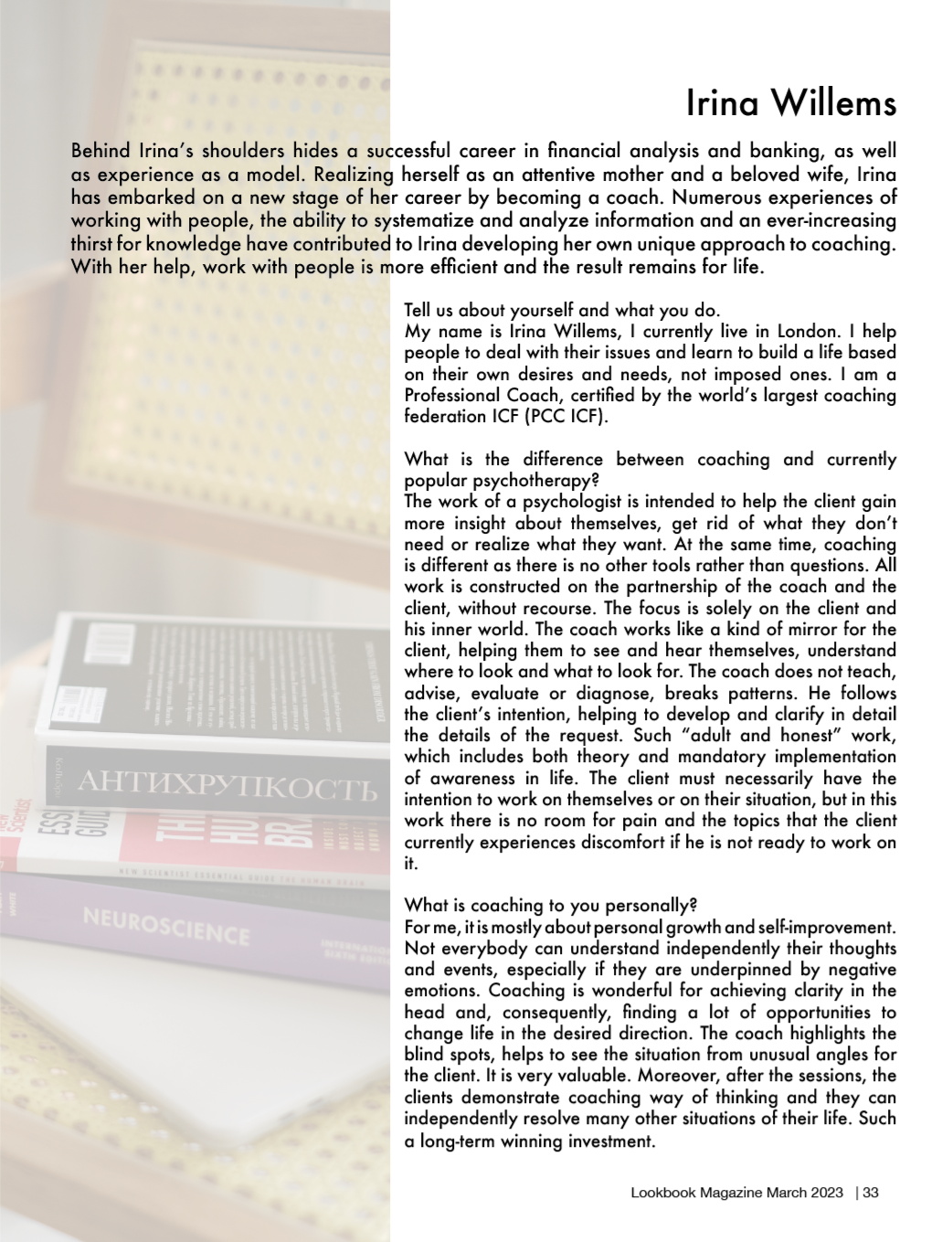
You are talking about the author’s working method.
Tell us more about it
What is it and why is it unusual?
Classic Coaching is based on questioning and a high level of attention to the client’s words and behavior. Expertise or advice from the coach either does not appear at all or can be given at the request of the client. I have held many sessions where, at the request of the clients, I have talked to them about the interconnection of processes in the body, the nature of the origin of some reactions, ways of influencing a person, etc. The result was phenomenal – the clients not only handled their requests more quickly and efficiently, but also understood themselves better, and this for life. Inspired by there great results, I decided to move away from standard coaching and apply all the knowledge I have acquired through studying, books, scientific researches, awareness practices, etc, in my coach sessions for the benefit and with the consent of the clients. I never give formulas, I never tell a client what to do. I explain the principle of work, which can be applied to almost any of your intentions.
Can you tell me more about your training?
There’s a lot and it never stops. I’m studying neuroscience (neuromedicine, neuroscience, neuroeconomics), wellbeing, spiritual practices and meditation, brain sciences, subconscious, energy work, and much more.
My curiosity lies in the fact that I’m collecting an image of human thought from different angles and with different terminology. I’m studying how you can influence yourself for the maximum benefit for yourself. Such multilateral and universal instruction for an individual, based on the uniqueness of each person and thus giving different results according to the people.
Is it not difficult to be involved in the problems of so many different people?
When working with a lot of people, it is very important not to get involved in the problems, but to see the essence of it and be able to look at it from the inside and ‘overview’ it. The client is usually completely immersed in the problem – they need a different, sober, curious and objective outside view. Therefore, my task is to remain neutral. Anything we talk about in a session stays there and leaves my head after the client leaves. This ensures the strict confidentiality that is at the heart of my work. Furthermore, a mandatory part of the coaching work is supervision.
This is how I make sure that I am not influenced by the emotions of the client and can remain neutral.
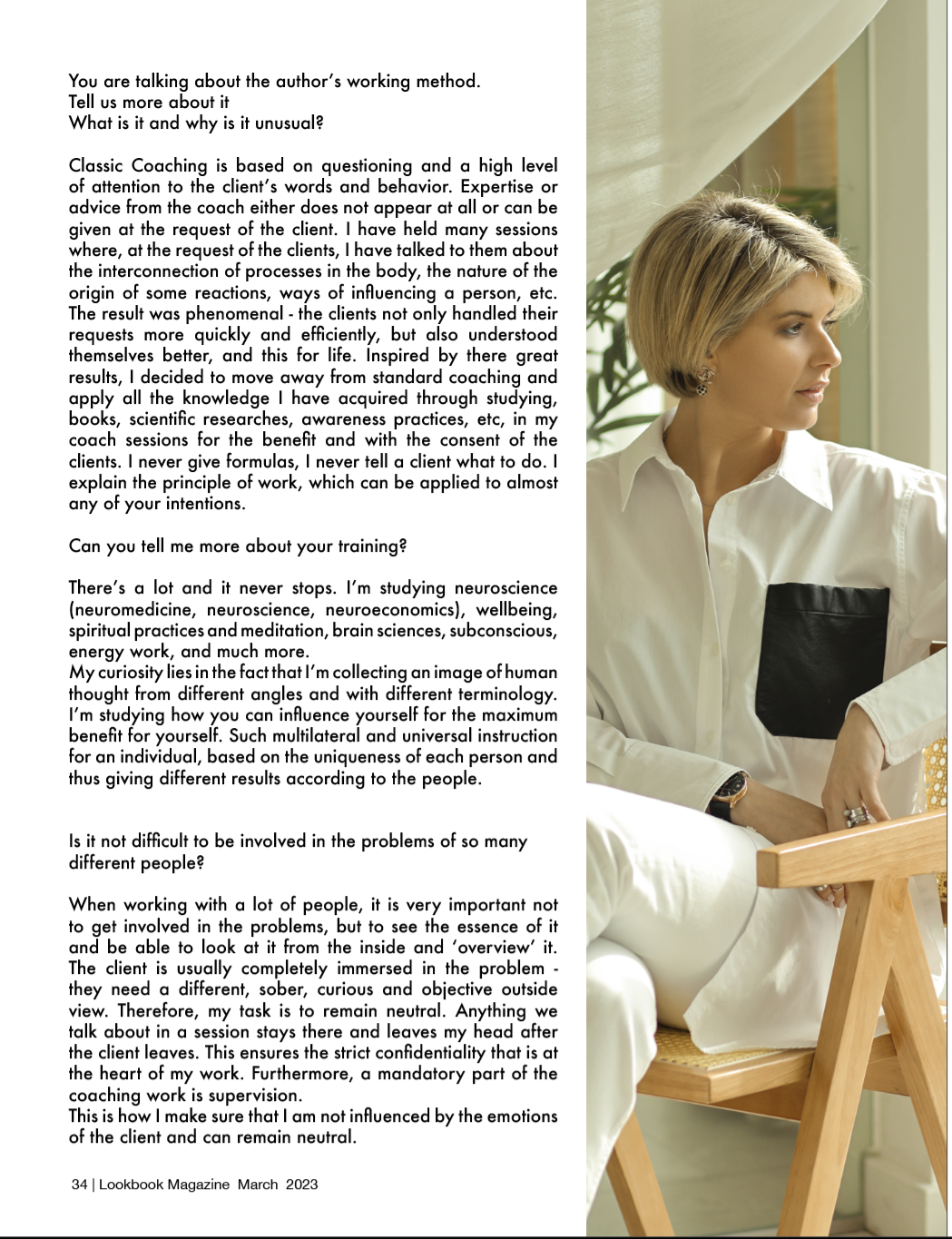
What kind of clients do you work with, and what are their requests?
I mostly work with “confused” clients. Ambitious, with a sharp mind, full of active life, but at the stage of many of your tasks or projects, unprocessed emotions, that you can no longer understand what is the cause and what is the effect. Often, clients also come to me to help them understand themselves, to distinguish their true needs from social patterns and expectations of others. In fact, neither gender nor age matters, as all my work with a client is based on deep work with a personality. This is the basis of stability and healthy movement in life. When there is an understanding of yourself, your strength and your uniqueness, the ability to use your qualities optimally, you can integrate anything.
Like a tree, which can only have a beautiful crown if it’s roots and pillar are strong and don’t have any issues.
What should a person pay attention to when choosing a coach?
First of all, you should count on the presence of the so-called chemistry between coach and yourself. If you feel comfortable to communicate, if you feel that you can trust this person with your secrets and fears, it is worth trying. Respect for confidentiality and lack of violation of client boundaries, I also consider this to be an important point. Recommendations of former clients, expertise, education, badges, accreditation are also important but to each to a different degree. Usually, the first 2-3 sessions show how correct your choice was.
Irina, we thank you for granting us your time and for sharing with us your work as a coach. It was very enriching for us and we wish you even more success and achievement in your passion.
instagram : willems_irina
